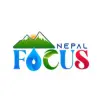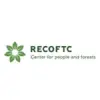Terms of Reference (ToR): Social Audit of Adolescent Maternal and Newborn Health Services in Chhedagad Municipality, Jajarkot of Karnali Province, Nepal
Details / requirements:
Terms of Reference (ToR)
Social Audit of Adolescent Maternal and Newborn Health Services in Chhedagad Municipality, Jajarkot of Karnali Province, Nepal
Publication Date: 26 October 2025
Closing Date: 31 October 2025
1. Background
Panchtara Yuwa Samrakshak Manch (PTYSM) is a development and humanitarian non-governmental organization (NGO) based in Jajarkot District, Karnali Province, Nepal. Established in 1997 and officially affiliated with the Social Welfare Council in 1998, PTYSM was founded by a group of young development professionals and social workers with a strong commitment to rural transformation and community empowerment. PTYSM’s vision is to promote social justice through the empowerment of vulnerable and marginalized communities, while its mission focuses on fostering inclusive development that ensures equitable access to opportunities, services, and resources for all.
Since its inception, PTYSM has been working with economically poor, socially excluded, and disadvantaged populations particularly Dalits, indigenous peoples, women, youth, children, and persons with disabilities (PwDs) to address the root causes of poverty, inequality, and social exclusion. Over the past two decades, PTYSM has successfully implemented a wide range of development and humanitarian projects in collaboration with several national and international partners in Save the Children International. Currently, PTYSM has been implementing Action for Adolescent Maternal and Neonatal Health (Action aMNH) in Chhedagad Municipality, Jajarkot in collaboration with Save the Children International.
2. About the Project:
In Nepal, adolescents (aged 10 to 19 years) constitute approximately six million (19.7%) (Census 2021). These population groups continue to experience health risks resulting from teenage pregnancy, unplanned pregnancy, and unmet needs for family planning. Though the legal age of marriage in Nepal is 20 for both sexes, the average age of marriage for girls is 18.3 years and for boys is 20.7 years. About 27% of adolescent girls 15-19 years are already married and 14% of them have been pregnant, with Karnali province having highest prevalence of teenage pregnancy at 21% (NDHS 2022).
PTYSM is implementing the Action for Adolescent Maternal and Neonatal Health (Action aMNH) project in Chhdagad Municipality, Jajarkot with support from Save the Children. Action aMNH builds on "Sahayatra" to include additional content for pregnant and parenting adolescents, and to address the factors that drive (dis)respectful care at the facility level.
This is a 3-year (Jan 2025-Dec 2027) project which aims to strengthen adolescent-responsive MNH services to enable pregnant and parenting adolescents and their babies to survive the critical period of pregnancy, childbirth, and the first 28 days of life, and to thrive in a more gender-equitable community that values the voices and contributions of adolescent girls. It will achieve the aim through three interrelated outcomes:
Outcome 1: Improve pregnant and parenting adolescents’ MNH knowledge, skills, and behaviors.
Outcome 2: Improve the quality and respectfulness of antenatal care, delivery, postnatal care, and postpartum family planning services for pregnant and parenting adolescents.
Outcome 3: Increase the meaningful engagement of adolescents in the mechanisms by which communities hold health services accountable for meeting their needs and rights.
Despite policy commitments such as the National Adolescent Health and Development Strategy and Nepal’s commitments to Sustainable Development Goals (SDGs 3 & 5), gaps remain in service accessibility, quality, and accountability. Despite many ongoing efforts to strengthen maternal and newborn health services, pregnant and parenting adolescents (PPAs) often remain underserved. A social audit is therefore proposed to generate robust evidence on the responsiveness of health services to adolescents’ needs, amplify community voices, and strengthen accountability mechanisms at local and provincial levels.
3. Objectives
Overall Objectives: To assess and strengthen the accountability, responsiveness, and quality of adolescent maternal and newborn health services in Karnali Province through a participatory social audit process.
Specific Objectives:
- To evaluate the availability, accessibility, and quality of adolescent maternal and newborn health services in selected districts of Karnali Province.
- To identify structural, cultural, and systemic barriers hindering adolescents’ utilization of maternal and newborn health services.
- To capture adolescents’ and young mothers’ voices and experiences in accessing health services, with particular focus on marginalized and disadvantaged groups.
- To foster constructive dialogue among communities, service providers, and local governments to promote accountability and responsiveness.
- To generate actionable recommendations for policy advocacy, donor programming, and health system strengthening.
4. Scope of Work
The social audit will focus on:
- Geographic Coverage: Health Facilities of Chhedagad Municipality, Jajarkot.
- Aspect:
- Transparency of health sector activities
- Accountability and Responsibility for providing quality and health services
- Accountability and Effectiveness in implementation of the health policy and legal framework
- Public participation, empowerment for making health services accountable.
- Thematic Areas:
- Specific Thematic Areas: Adolescent pregnancy, respectful antenatal and postnatal care, skilled birth attendance, family planning, emergency obstetric and newborn care, adolescent-friendly services, and referral pathways.
- Quality of Health Services: Human resources management, Health workers behavior, Infection Prevention and control, Hygiene and sanitation, Gender and disability friendly, Quality Improvement strategy and its implementation, HMIS status and reporting, Physical structure.
- General Areas: Health facility management, HFOMC structure and its meeting, Health facility opening time, Complain handling mechanism, Free health Services.
- Stakeholders Engagement: Adolescents (especially girls), young mothers, marginalized communities, health workers, Female Community Health Volunteers (FCHVs), HFOMC, civil society actors, local governments, provincial health directorate, and development partners.
5. Methodology
The social audit will use a participatory and rights-based approach, with mixed methods for evidence generation. It will be based on the Federal Directives for the Health Sector- Social Accountability -2077.
- Desk Review: Analysis of municipal policies, strategies, HMIS/DHIS2 data, adolescent health reports, and health facility records.
- Facility Assessments: Review of health infrastructure, human resource status, service readiness, and adolescent-friendliness.
- Multisectoral Engagement:
- Community Engagement: Focus Group Discussions (FGDs) with adolescents, mothers, and marginalized groups.
- Service providers and others: Key Informant Interviews (KIIs) with health workers, community leaders, and local authorities.
- Participatory: Community scorecards to assess service quality, inclusivity, and accountability.
- Public Hearings / Interface Meetings: Transparent presentation of findings to communities, service providers, and local governments; joint action planning.
Note: Use all the tools and templates under Social audit as per Federal Directives for the Health Sector- Social Accountability -2077.
6. Deliverables
- Inception Report with refined methodology, tools, and timeline.
- Draft Social Audit Report including facility-level findings, community perspectives, and preliminary recommendations.
- Final Social Audit Report with evidence-based recommendations, action plans, and case studies for advocacy. (Template defined in the guideline)
7. Duration
The social audit is expected to be completed within 7–9 days, covering inception, fieldwork, validation, reporting, and dissemination.
8. Expertise Required
The assignment requires a team/consultancy firm with:
- Proven experience in conducting social audits, participatory governance, or accountability initiatives in health with bachelor's degree.
- Strong expertise in maternal, newborn, and adolescent health programming in Nepal or similar contexts.
- Competence in qualitative and quantitative research methods.
- Experience working with NGOs, donors, and government counterparts.
- Understanding of gender, equity, and rights-based approaches in health.
- Proficiency in Nepali and local languages of Karnali Province is highly desirable.
9. Reporting and Coordination
The consultant/team will report to the PTYSM Jajarkot with technical oversight from Save the Children.
Regular coordination will be maintained with local governments and relevant health partners.
10. Budget and Payment Modalities
- The financial proposal should detail professional fees, travel, accommodation, logistics, and dissemination costs.
- Payment will be made in two installments upon satisfactory completion of deliverables as per the following terms:
- First Installment (40%) – Upon submission and acceptance of the Field Report summarizing observations and outcomes of community consultations and public hearings.
- Final Installment (60%) – Upon submission and approval of the Final Social Audit Report incorporating feedback and recommendations.
All payments will be made via bank transfer and subject to applicable government tax deductions as per Nepalese law.
11. Ethical Considerations
- Obtain informed consent from all participants, with special safeguards for adolescents.
- Apply gender-sensitive and inclusive approaches, prioritizing marginalized voices.
- Maintain absolute confidentiality and respectful handling of all information, data, and findings obtained during the assignment.
- Uphold principles of neutrality, impartiality, respect, and professionalism at all times.
- Ensure that no information, photographs, or findings are disclosed or used for other purposes without PTYSM’s prior written consent.
- Respect cultural and social norms during field engagement and public interactions.
12. Termination Clause
PTYSM reserves the right to terminate the contract if the consultant/firm fails to deliver outputs on time, does not meet quality standards, or violates professional ethics. In such cases, a written notice of two (2) days will be provided before termination, specifying reasons and next steps.
13. Application Process
Interested and qualified individuals or firms are invited to submit their technical and financial proposals in electronic form by the deadline announced in the notice. The application package must include:
- A Cover Letter expressing interest, availability, and suitability for the assignment.
- A Detailed Financial Proposal with a clear cost breakdown (professional fees, travel, logistics, taxes, etc.).
- Updated Curriculum Vitae (CVs) of consultant(s) highlighting relevant experience.
- Copies of work completion certificates or references from similar assignments.
- Valid Firm/Individual Registration and Renewal Certificates.
- PAN/VAT Registration Certificate.
- Latest Tax Clearance Certificate.
Submission Address
Panchtara Yuwa Samrakshak Manch (PTYSM), Jajarkot
Bheri Municipality–3, Khalanga, Jajarkot, Karnali Province
Email: ptysm.jajarkot@gmail.com
Contact: 089594068, 089430068
Overview
| Category | Development Project, Expression of Interests, Tender Notice, Bid, Auditing |
| Openings | 1 |
| Position Type | Contract |
| Posted Date | 26 Oct, 2025 |
| Apply Before | 31 Oct, 2025 |
| City | Jajarkot |





